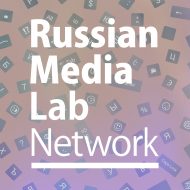Special issue of Media & Communication
Media control and media freedom are like unicorns: everybody tries to see them, but nobody succeeds. Today, in a digitalised, networked world, these unicorns are ever more elusive, as digital technologies blur the lines and create new ones about what media control is and how it can be exerted. Additionally, we should not limit control to initiated by political forces only but take also into consideration economic pressure (Pleines 2016), social pressure, and others, resulting in different ways of agenda setting, framing and priming of media content. On top of it, scholarly discussion on control by the ‘state’, ‘business’, etc. should imply a more nuanced study of different actors with their interests, roles and positions in the media sphere.
In addition to earlier existing mechanisms of direct and indirect influence on media, the internet creates new forms of control, but also new forms of freedom. Whether such phenomena will ultimately contribute to more or less control often remains yet unclear. Simultaneously, the internet provides new ways of resistance and adaptation to various forms of control and manipulation over and in media. Media practitioners, no longer limited by newsrooms and institutionalised media outlets, expand their agency through the possibility to produce and disseminate content via different channels and platforms in a hybrid and fragmented media sphere.
The rise of populism in global politics together with recent political crisis in Europe (illiberal turn in some countries of Central and Eastern Europe, Brexit) draws the attention to another dimension on the study of media control, namely how media control can be aligned with regime type. In electoral or competitive authoritarian regimes media manipulation is used more often than most other types of manipulation when regimes attempt to shift the “playing field” in their favour. Similarly, media outlets are one of the first targets of governments that display authoritarian tendencies. This makes media one of the major battlefields in political power struggles.
This thematic issue aims to put forward an alternative approach to the scholarly discussion on media control in today’s world in two ways. First, we aim to re-consider and re-assemble the notion of media control itself, as not being holistic and discrete (control vs. freedom), but by considering it from a more critical and postmodernist perspective as having various modes.
Second, this thematic issue aims to bring a “micro” perspective into understanding and theorizing media control. In comparison to the macro perspective, which mainly investigates structural and institutional ways of media control, like the ownership of media capital (Pallin, 2017; Ryabinska, 2011) or the legal regulation of media, we propose a perspective that focuses on the agency of various actors in the processes of media pressure, in addition to the practices of exerting control and resistance to it. We attempt to unpack and scrutinize practices, motivations, and resources of various ways of media manipulation. Proposed articles could address, but are not limited to, the following questions:
- What is the agency of journalists, media practitioners, and online activists under political pressure? What are the practices of resistance and strategies of adaptation towards growing pressure?
- What practices of media control have developed in different kinds of political regimes? Should we rather talk about different dimensions or patterns of control in a digitally saturated environment?
- How do these practices differ in offline and online media, in institutionalised newsrooms and grassroots media initiatives?
- What are the actual challenges of media capture in the current technological environment?
The proposed thematic issue will contribute to an exploration of the aforementioned questions through an analytical discussion of cases that represent different types of pressures faced by media practitioners and practices of resistance to them. Following the logic of fragmentation and the diversity of media control today, each article will be an evidence to explore a particular form or practice.
Editors:
Olga Dovbysh, University of Helsinki, Finland
Esther Somfalvy, University of Bremen, Germany
Timeline:
- Submission of Abstracts: 1-15 October 2020
- Submission of Full Papers: 15-28 February 2021
- Publication of the Issue: August 2021
Instructions for authors, submission guidelines and open access terms can be found here.
The special issue will be produced in the context of the research project “Media control as source of political power: The role of oligarchs in electoral authoritarian regimes“, which is conducted by the Research Centre for East European Studies at the University of Bremen and receives financial support from the Deutsche Forschungsgemeinschaft (DFG, German Research Foundation) – grant No. 391270526.
